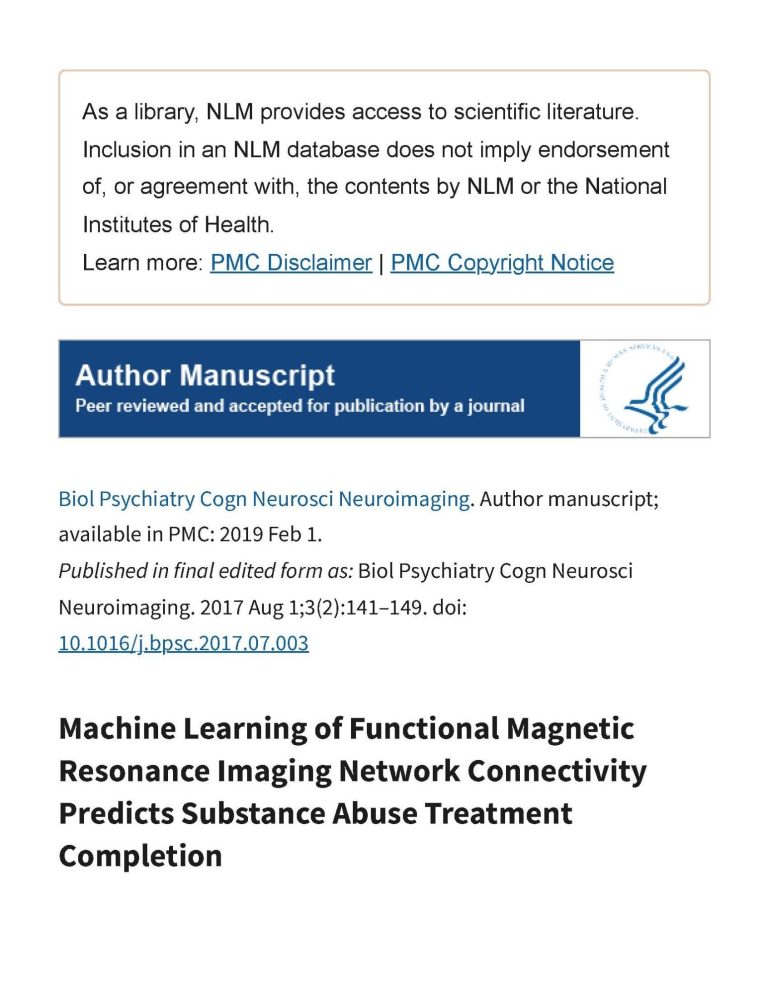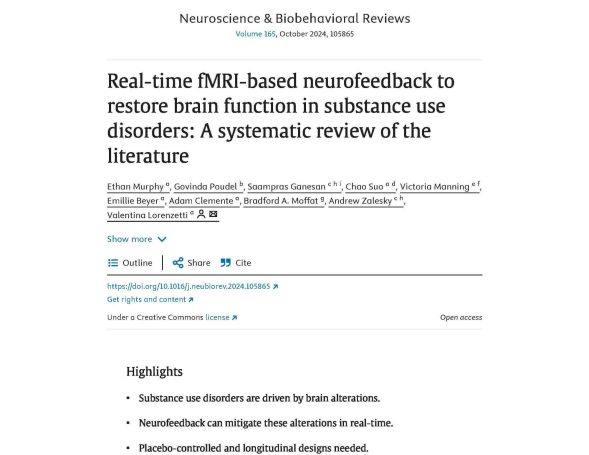Fuctional MRI
N.O.A,H.
Functional MRI (fMRI) is a powerful tool for studying brain activity in addiction, particularly for understanding the neural mechanisms involved in drug craving, cue-reactivity, and the effects of treatment.

Functional MRI
N.O.A.H.
Successfully treating illicit drug use has become paramount, yet elusive. Devising specialized treatment interventions could increase positive outcomes, but it is necessary to identify risk factors of poor long-term outcomes to develop specialized, efficacious treatments. We investigated whether functional network connectivity (FNC) measures were predictive of substance abuse treatment completion using machine learning pattern classification of functional magnetic resonance imaging data.
